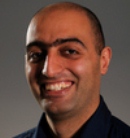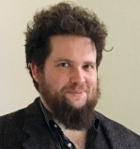Sensing and Privacy Workshop
Over the past decades, we have witnessed a dramatic increase in the systematic collection, processing, storage and transfer of personal data by the public and private sector to advance progress in various fields. Reliance on personal data keeps growing to a large extent by the technology users. There is no escaping from surveillance; traveling, financial transactions, telecommunications and online activity represent some key examples of normal, everyday activities that are constantly being monitored. Yet, individuals are often unaware of this excessive monitoring. Even if they are aware, they may not know what information is being held or the subsequent uses of that information. Whilst activists and scholars have been consistently scrutinizing the exercise of these powers and calling for more clarity in surveillance measures, governments and big corporations haven’t always responded to such calls. Individuals are, thus, left to wonder how to better preserve their private identity.
Privacy is often invoked as a response to such concerns; it triggers innovative discussions in search for solutions to better safeguard personal data, while at the same time accompanying the need for enhanced security measures or simply, for the collection of consumer data by the private sector. Therefore, reinforcing the protection of privacy and strengthening the measures adopted in this respect have great importance in this digital era. Privacy, which is supposed to safeguard the unwarranted inference, shall be taken into consideration from the very beginning throughout the life cycle of data collection and processing. Accordingly, the necessary measurements shall be integrated into the operations by default.
The Sensing and Privacy Workshop, organised by the Centre for Intelligence Sensing and the School of Law at Queen Mary University of London (QMUL), aims to provide a cross-disciplinary perspective, by bringing together technologists, policy makers, lawyers and social scientists to discuss privacy-related challenges on three distinct fields: Images and Videos; Surveillance and Data Communication; and Internet of Things. The workshop welcomes attendees with a background in physical sciences or humanities who are interested in privacy-related issues that - though cross-disciplinary by default - are rarely exposed to cross-disciplinary discussions and solutions.
For over two years, QMUL has been looking at new ways to develop effective cross-disciplinary collaborations on privacy, aspiring to tackle problems at their source by inviting all interested parties in the discussion. This initiative brings together computer scientists and engineers that design data-centred applications and are looking into how their tools will directly affect the users as well as legal scholars, whose research involves interpreting the law and are keen on gaining a better understanding of technology.
For additional information, please see https://cis.eecs.qmul.ac.uk/privacy.html. This workshop is part of the QMUL research engagement initiative CritiQues (Critical Questions at Queen Mary).
| Where: Arts Lecture Theatre, ArtsOne building, Mile End Campus (number 37 in map) |
| 20 June 2017 | ||||||
| 09:00 | Arrival, and tea & coffee | |||||
| 09:20 | Welcome and introduction - Andrea Cavallaro | |||||
| 09:30 |
Technologies for making privacy violations transparent and accountable I will explain the tension as I see it between the right to privacy and the need for security, and the idea that these concepts are fundamentally reinforcing each other rather than opposing each other. Based on these ideas, I will briefly describe a system of "accountable escrow". In this system, governments are able to violate any citizen's privacy, but citizens obtain evidence of the extent to which governments exercise this capability and the extent to which there are beneficial outcomes.
|
 Mark Ryan
Mark Ryan
|
||||
| 10:00 |
Retention of telecommunication data under scrutiny by the CJEU It is widely known that telecommunication data (metadata) constitute a useful tool for police authorities to investigate serious offences. However, their retention by telecommunication companies has been under scrutiny by the CJEU, which has imposed important limits to EU Member States’ power to conduct mass surveillance on innocent people. This presentation will take stock of these ruling and discuss the privacy implications of such retention, particularly in light of the UK Investigatory Powers Act 2016.
|
 Camilla Graham Wood
Camilla Graham Wood
|
||||
| 10:30 |
Legal system and privacy issues on the implementation of CCTV cameras in public and private spaces - Perspectives and challenges from Spain
The Spanish Organic Law 4/1997 regulates video cameras and any sound-recording device, fixed or mobile, operated by a member of a Police Force and used in a public space (open or closed). The devices operated by private security are not covered by this Law, but by Law/2014. Moreover, there are some jurisprudence on the use of hidden CCTV at the workplace. In this presentation we discussed some challenges and privacy issues on how to protect fundamental rights when CCTV cameras are in operation. |
 Jose Ramon Agustina
Jose Ramon Agustina
|
||||
| 11:00 | Coffee break | |||||
| 11:30 |
Privacy protection in visual data: overview and challenges With the widespread use of cameras, coupled with every-increasing imaging technology performances, privacy and security are key concerns. Privacy protection in visual data is typically achieved by deteriorating the image quality of selected areas in order to prevent person or object recognition. Methods include blurring, pixelation or scrambling. In this talk, I will give a brief overview of privacy protection methods, address the problem of benchmarking privacy protection algorithms and conclude with open research challenges.
|
 Frederic Dufaux
Frederic Dufaux
|
||||
| 12:00 |
Technology and privacy in the EU legislation to fight terrorism and other serious criminal offences This presentation will look into the deployment of technological advents at EU level in order to tackle phenomena such as irregular migration or serious crime, including terrorism. In that respect, focus shall be placed on three separate mechanisms: the exploitation of biometrics of foreigners and EU citizens, the use of drones in the Mediterranean and profiling in the form of processing PNR data for identifying unknown terrorists and criminals.
|
 Niovi Vavoula
Niovi Vavoula
|
||||
| 12:30 |
Privacy and personalised data analytics In this talk, I present a number of examples where a user-centred approach can be utilised by cyber physical systems to provide privacy-preserving analytics, while preventing excessive resource usage and personal information leakage. I will then demonstrate the Databox system; an open source, privacy-aware personal data platform which enables a scalable, collaborative and transparent ecosystem for household and IoT data analytics, actuation, and Human-Data Interaction.
|
 Hamed Haddadi
Hamed Haddadi
|
||||
| 13:00 | Lunch | |||||
| 14:00 |
The ‘P’ in IoT is for Privacy The prevalence of IoT devices causes an explosion of user data, which makes it very difficult for ordinary users to protect and manage the privacy of their own data. This talk acknowledges that privacy is inherently hard to achieve in IoT, and looks at some ideas to address this challenge. Security implications and opportunities presented by IoT will also be discussed.
|
 Budi Arief
Budi Arief
|
||||
| 14:30 |
User-centric regulation for the domestic Internet of Things Increasingly, technology designers are being called upon to address regulatory challenges posed by emerging technologies (eg privacy by design provisions in the new GDPR). However, their role in regulation is not settled and needs to be situated both conceptually and practically. We present a multidisciplinary response by examining what the field of human computer interaction (HCI) can offer regulation. A number of conceptual, empirical and design led perspectives from the interface between IT law and HCI will be presented in this talk. We ground these within the case study of doing information privacy by design for the domestic internet of things. As HCI focuses on how users interact with technologies in practice, in designing user experiences, HCI practice draws on a range of approaches and concepts to develop a rich picture of the social context of technology use. By reframing these to consider regulatory and ethical dimensions of IoT, we argue the role of technology designers in regulation can be better understood.
|
 Lachlan Urquhart
Lachlan Urquhart
|
||||
| 15:00 |
Privacy-preserving publication of complex data Data about individuals are becoming increasingly complex. This is partly because there is need to represent individuals’ purchases, social network check-ins, diagnoses, interactions with IoT devices, etc. over time, to be able to support studies in marketing, health, and social sciences. Protecting the privacy of individuals in such complex data is challenging, particularly when the protected data need to remain useful for analyses. The challenges stem from the high-dimensionality and size of data, and from the difficulty in transforming data under constraints posed by the analyses. In this talk, I will review the problem and provide an overview of our work on privacy models and algorithms for preventing it.
|
 Grigorios Loukides
Grigorios Loukides
|
||||
| 15:30 | Coffee break | |||||
| 16:00 |
Sensing and Privacy Panel Chair: Tony Bunyan Panellists: Valsamis Mitsilegas, Mark Ryan, Budi Arief, Camilla Graham Wood
|
|||||
| 17:00 | Closing remarks & reception | |||||

|

|

|

|

|

|

|

|

|